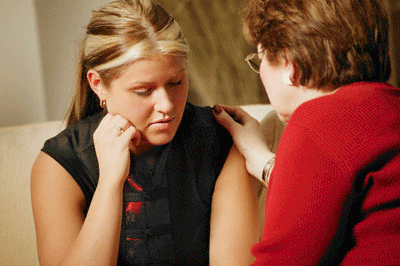Finding a Cocaine Rehab Center
Every year, cocaine addiction destroys individuals and families through a vast array of circumstances. Not only does the cycle of damage have profound effects on the addict’s physical and psychological health, but repercussions involving employment, financial, legal, and social issues are unlimited. Cocaine rehab centers can help “break the cycle” by, comprehensively, treating the addict and their needs as a whole, not just their addiction. Cocaine rehab treatment begins with detox and stabilization care, which is monitored 24 hours a day by experienced professionals who can manage any complications that may arise. After stabilization, a treatment combination of medications, ancillary services, and therapies can be prescribed based on the needs of the individual. Most professionals agree that the best cocaine rehab treatments include behavioral therapies such as cognitive behavior therapy (CBT), which helps to realize and analyze thought patterns that may lead to abuse. Unlearning these behaviors takes time, but through a variety of programs and ongoing support, the addict can succeed in overcoming this addiction.
Identify the Addict
Cocaine rehab centers vary in types, length, programs offered, amenities, and cost. So, the way to decide, which cocaine rehab center is best, is, to first, identify the addict. Do they have co-addictions or mental health disorders? Do they have special needs or physical impairments? Have they attempted rehab before and been unsuccessful? Evaluations, assessments and treatments are most helpful when they address the other presenting problems of the addict. Identify their resources, including family and support, finances, insurance, time and ability to be absent from school or work, transportation, and any other concerns that may affect their participation in a cocaine rehab. Support, feedback, and leaning from other addicts who have similar experiences, is a key benefit of support groups. Considerations of age, gender, and social situations can play an active role in these interactions.
Finding a Cocaine Rehab Center
Many facilities can be found online, in phone books, and through local and state government sources such as community health departments. They are usually classified as inpatient or outpatient, short term or long term, along with support groups and 12-Step programs such as Alcoholic Anonymous or Narcotics Anonymous. In most cases, outpatient care may be as effective as inpatient care and starting with the least intensity may be advisable. There are thousands of cocaine rehab centers listed throughout the country and the best way to find out if a center is the right fit is to speak directly, with a representative of the facility. Every person is unique, it is important to be well informed regarding cocaine rehab centers and the optional programs available.
Another way to find a cocaine rehab center is to contact your family care provider, insurance provider, or other local sources for referrals and advice. Many religious and non-profit organizations sponsor treatment programs and may be the most readily available at little or no cost. Contact local churches to find out the availability and any alternative programs they have to offer. Many cocaine rehab centers provide treatment based on the 12-Step program and these types of support groups can be found, simply, by asking locals, friends, relatives, and co-workers or contacting agencies that are most affiliated with these groups.
The Substance Abuse and Mental Health Services Administration (SAMHSA), maintains a list of drug rehabilitation centers which is updated monthly. The Substance Abuse Treatment Facility Locator list includes private and public facilities that are “licensed, certified, or otherwise approved for inclusion by their state substance abuse agency.” Most of the centers are able to treat a variety of addictions.
